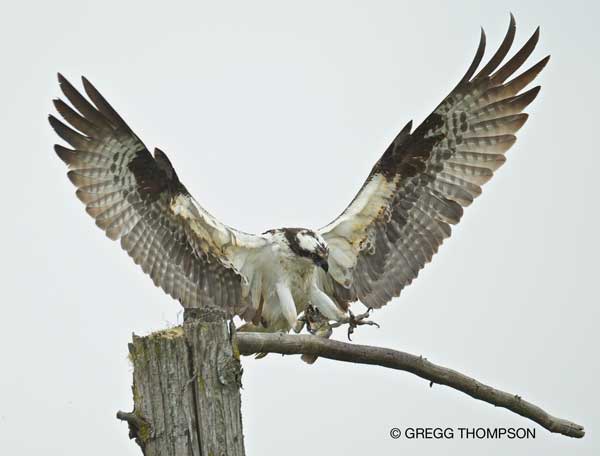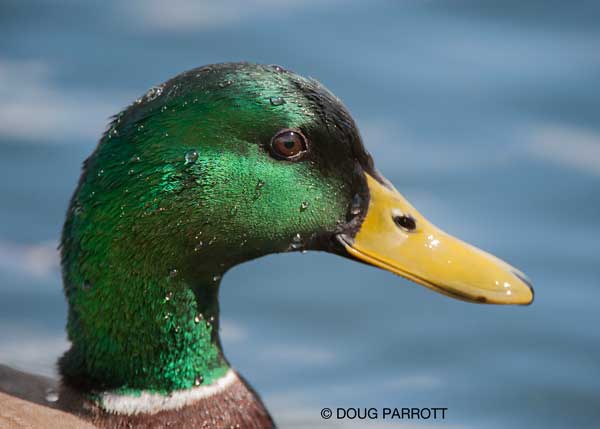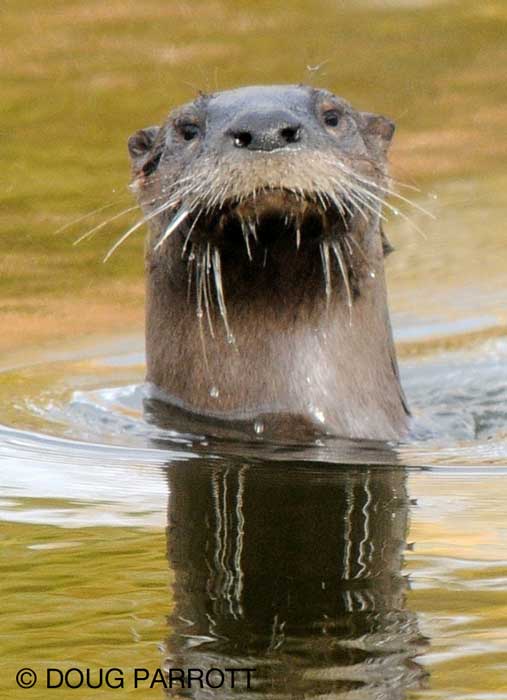
Although I am a birder at heart, I can’t help but notice some of the marvelous mammals that inhabit Montlake Fill as well. A River Otter family regularly swims over from Foster Island to frolic among the cattails on our side of the bay and tease the ducks, like pesky toddlers in the back seat: “He’s on my side.” “She’s making faces at me.” “Mooommmm!”
The beavers have been hard at work, as if to fulfill their stereotypical image. They cut down all the birches at East Point and have begun work on a mammoth cottonwood on Boy Scout Pond. What they will do with it when it falls is beyond me.
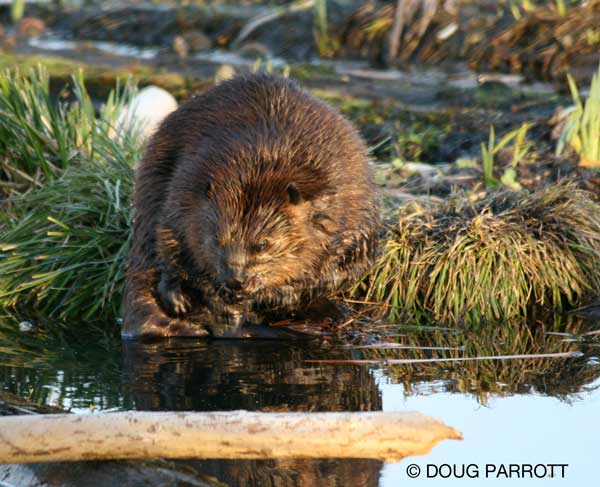
There are seven beaver lodges encircling Union Bay, including one in Yesler Swamp. You can see these large members of the rodent family swimming around the bay if you get out here at dawn or dusk. I once sat my campstool near a mud-slick trail leading out of the water and watched a large North American Beaver swimming toward East Point. He stopped short when he saw me and slapped his tail on the water, which I thought was a warning to other beavers to watch out for the dangerous human in the floppy hat. But instead of diving and escaping, he began to slap harder and harder. At last he was slapping so hard, half his body was coming out of the water with each slap, and I could see his little back feet wiggle. It finally dawned on me that he was trying to tell me to go away so he could climb out and eat the succulent bark nearby. I slunk off. Apparently I am deficient in beaver-speak.
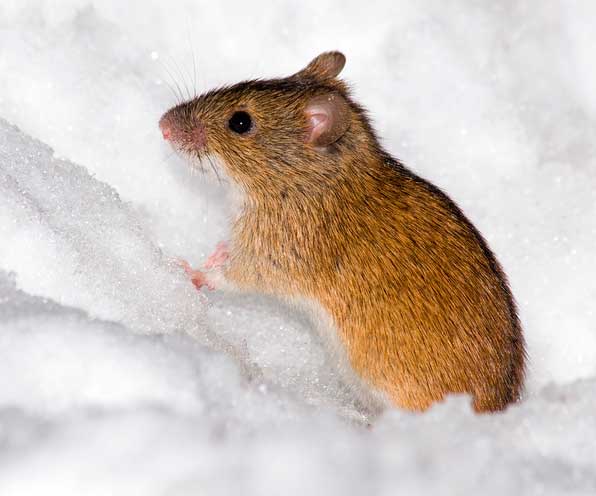
Among my favorite rodents, surprisingly, are the field mice who come out sometimes to feed in the fields. I say “surprisingly” because if I see one in my house, I eek with the best and make haste to stand on a chair. Mickey Mouse was never one of my idols. But wild mice in their natural habitat are cute. More or less. Last time we had a little snow, I found one peeping out at me from a little tunnel it had dug beside the trail. Its nose quivered in the cold as it checked me out, so I wrinkled my nose too and smiled, glad of my muffler and the warm heater I knew was waiting for me back home.
Here is a poem for you this winter’s day:
Light glazed the snowfield,
no track to mar the gloss,
’til you poked out,
little mouse of wild ways,
and left a wispy trail.

